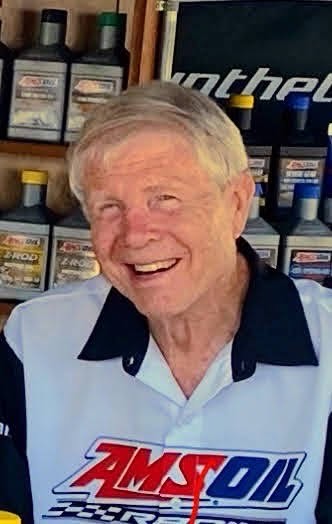Publisher's Note: Welcome to our second edition of Tech Tips Tuesday on "Diesel Fuel: Don't neglect This Crucial Aspect!". We'll be re-publishing an edition of AMSOIL Tech Tips for you every Tuesday. Click on the Blog Category "Tuesday Tech Tips" to see everything published to-date.
John Gardner: Diesel and water just don't mix. A clean running diesel is a happy diesel. Welcome to this AMSOIL Tech Tip on diesels and diesel fuel. Let's take a look at a diesel system and see how it works.
So, right here, we actually have the fuel tank down here. Now, in our fuel tank, you have a fuel pump. So think about that, once again, we're submerging it down in there, so we're going to have some issues with the fuel that we're going to have to address. Then, we come up through here, we're coming through a water separator. Now, we'll take a look at that in a minute, but that's critical because we have to separate that water from that diesel fuel. We're going to have issues on the other side.
Then, we come up here to the high-pressure fuel pump. 30, 40, 50, 60,000 PSI – that's where we got our high pressure coming over to a common rail, and then we're going into the injector and injecting it directly into the cylinder into a harsh climate with a lot of temperature, with a small pintle. That's a lot going on there, Len.
Now, I'm talking about this water separator. All the diesels have it. Boy, they really like clean fuel, don't they?
Len Groom: They do, they do. And you need to take care of that fuel. You need to treat the fuel depending on where you're at in the country, depending on what type of diesel you have. You need to treat it.
John Gardner: Len, there are different climates and different additives that go in the package. Because I'm in Florida, I got a lot of moisture, microbes, things going on in the diesel fuel that you may not have up there shoveling snow.
Len Groom: That's correct. All of our additives are biodiesel friendly, so the microbial protection is there, regardless. Yourself, you might default to maybe just an injector clean, maybe some cetane boost, get a little more bang for your buck out of the fuel, versus myself. I'm in northern Minnesota. I might want to use our cold flow improver, which will keep that fuel from gelling up. It drops that cold filter plug point down and really takes care of those cold temperature problems that I see, that you may not.
John Gardner: And it's a complete system. So, I mean, we're addressing the injectors, fuel, and everything with these products, right?
Len Groom: That's correct. You're taking it from the system line, from the tank as you described earlier, all the way to where it's pushed into the motor.
Whatever your comments, suggestions or questions for Diesel Fuel,
we welcome you to Contact Us!
The best ways to reach us are via our Contact Us page, or by calling us toll free at
1-800-581-5823 between 8 am and 9 pm CST Monday through Saturday.
You are welcome to 'Like" us on Facebook where we share news about our AMSOIL products and customers.
Please follow us on our LinkedIn Company Page for news as well.
If you're on Twitter, you'll find us at @vaughn_inc
You're welcome to follow our AMSOIL product news bites there as well.
Remember, the best way for you to reach us is via the contact us page on this website or by calling toll free 1-800-581-5823 between 8 am and 9 pm CST Monday through Saturday.
Whatever your interest we welcome your inquiry!
Greg Vaughn
Referral # 779
Vaughn Enterprises, Inc.
AMSOIL Direct Jobber
Greg@attenuating.com
www.attenuating.com
Office: 920-733-2753
Toll Free: 800-581-5823
Fax: 920-734-5823


